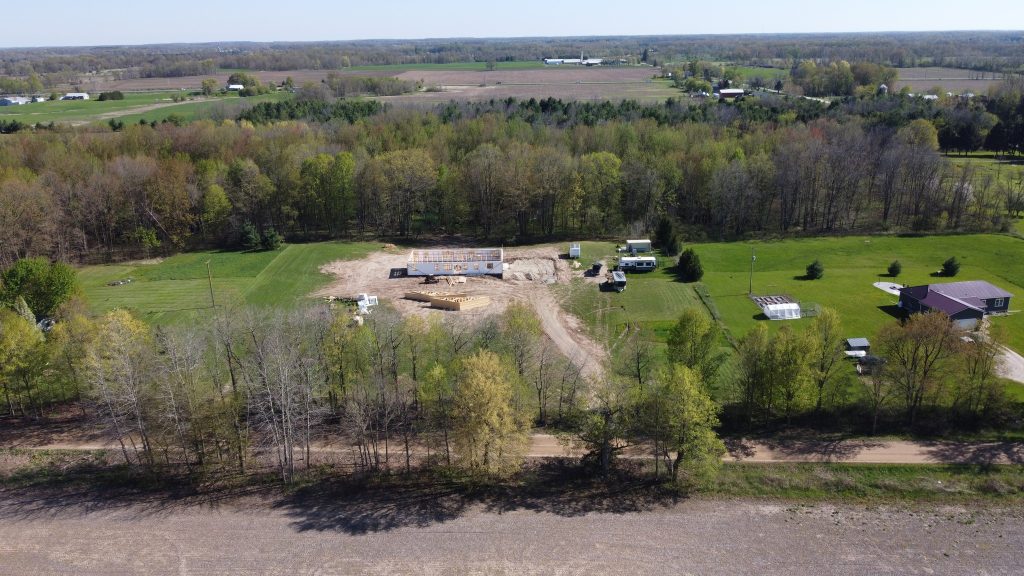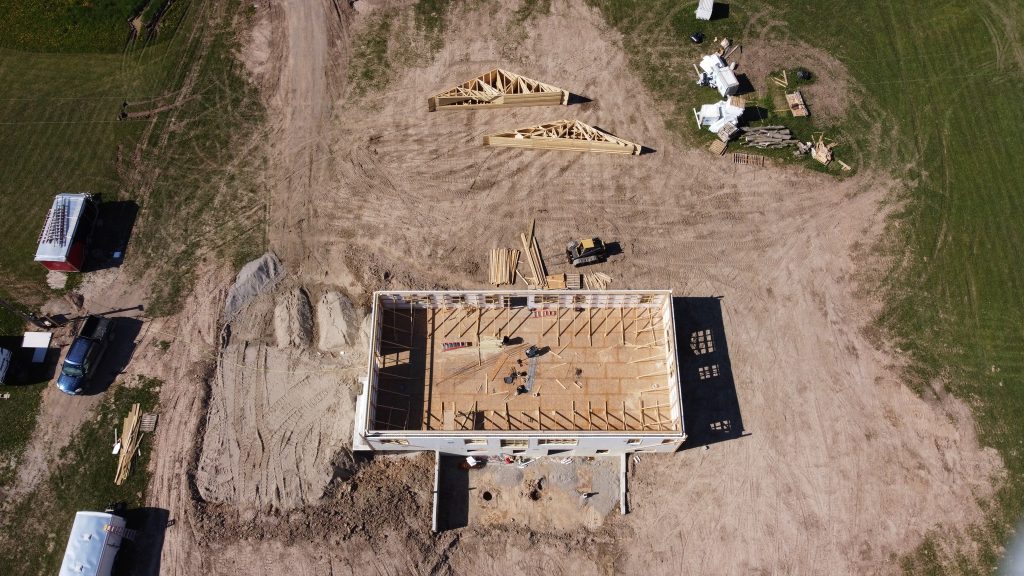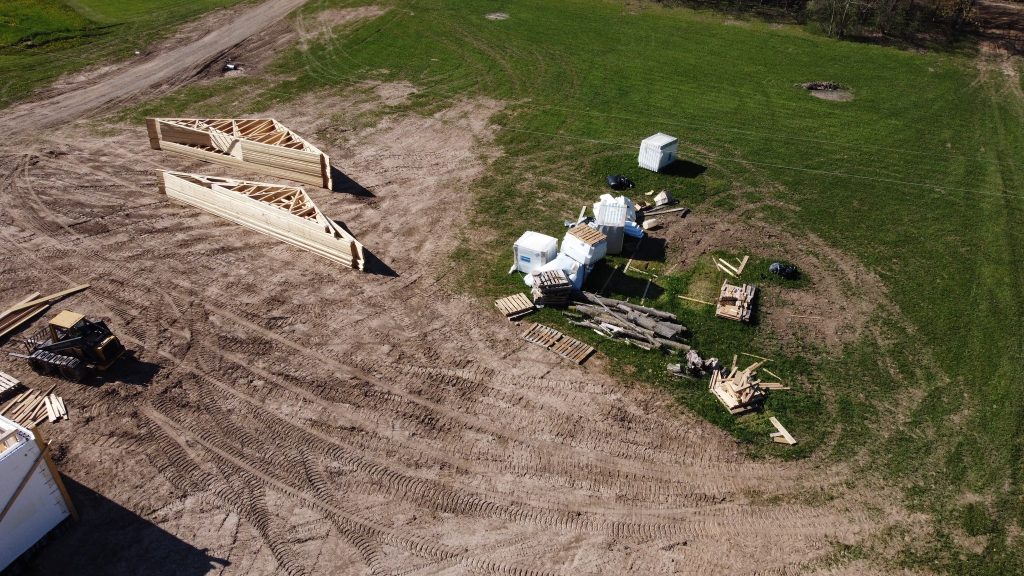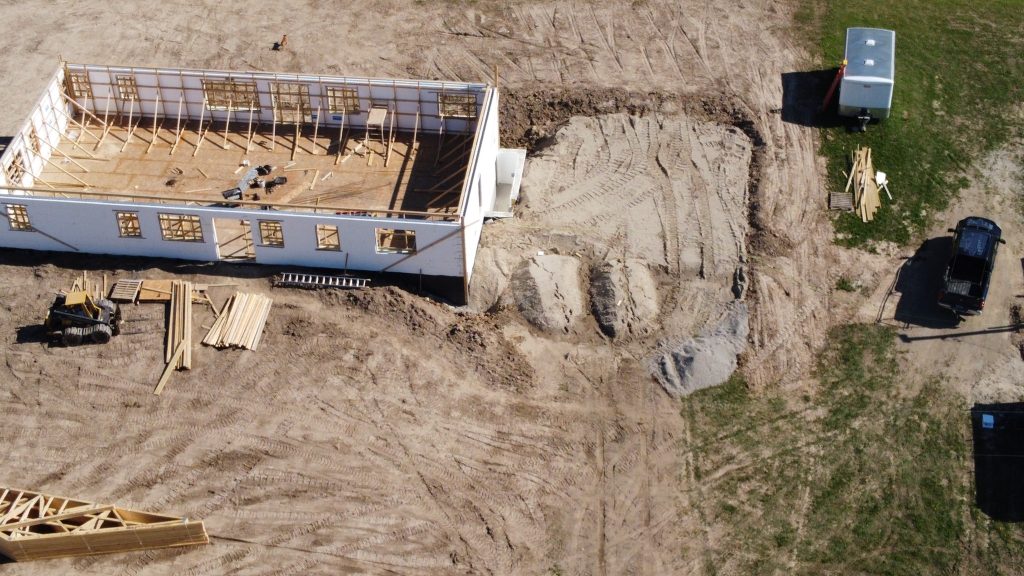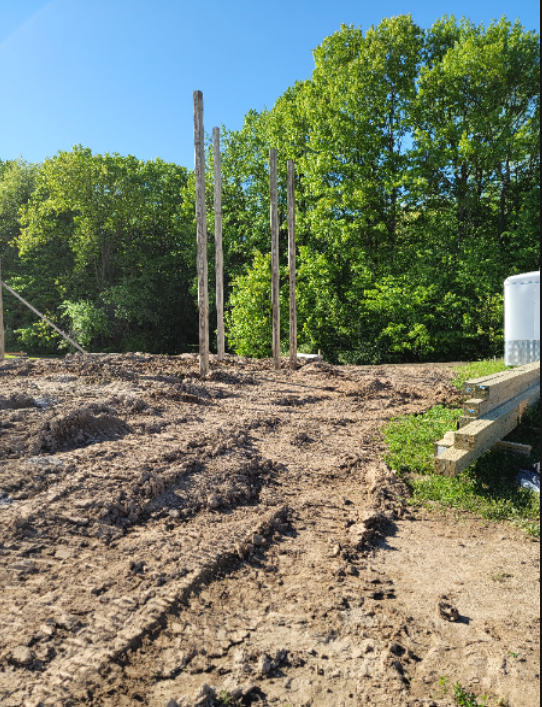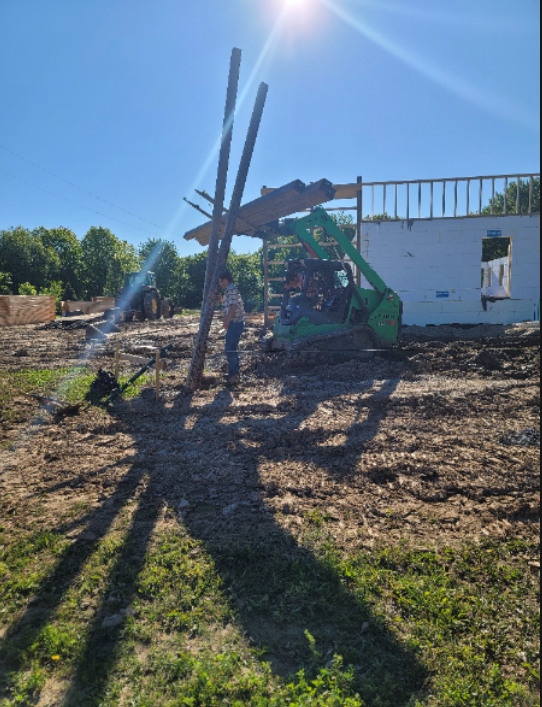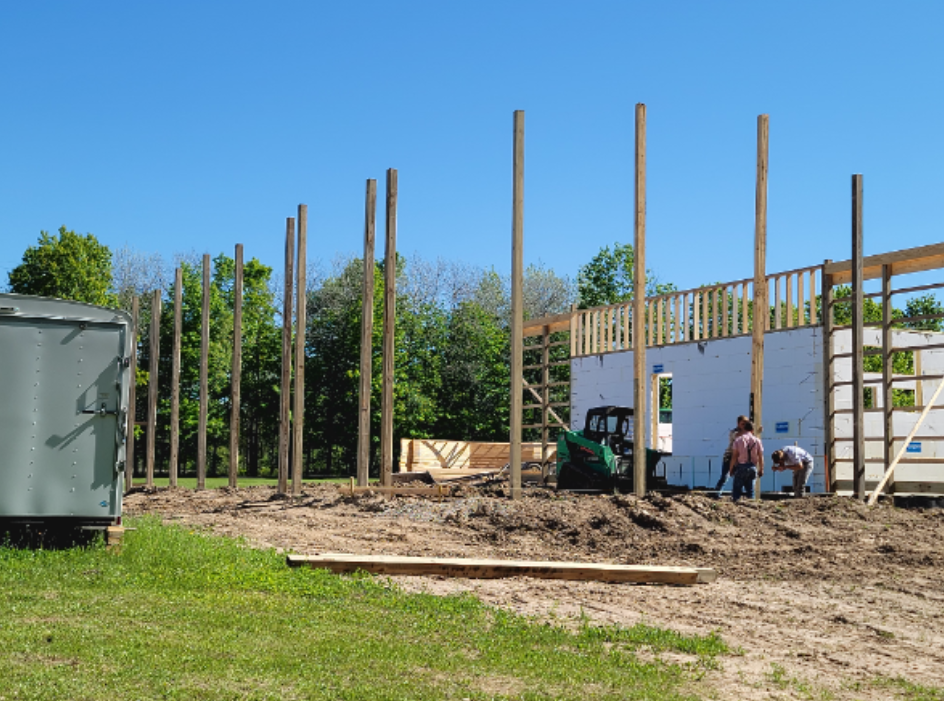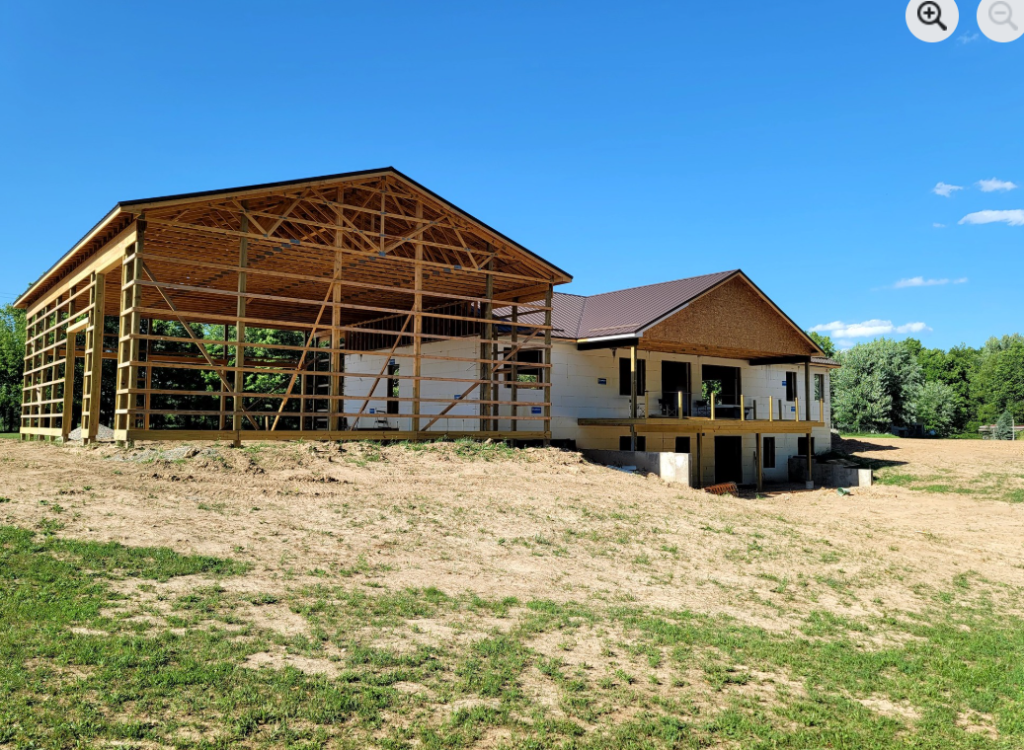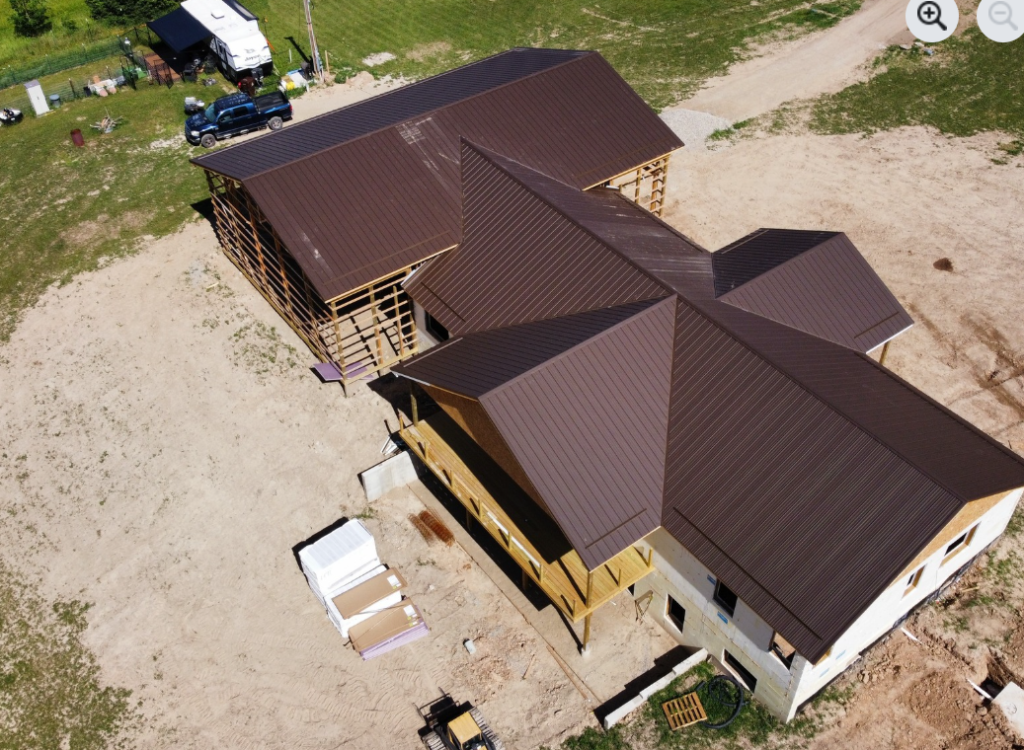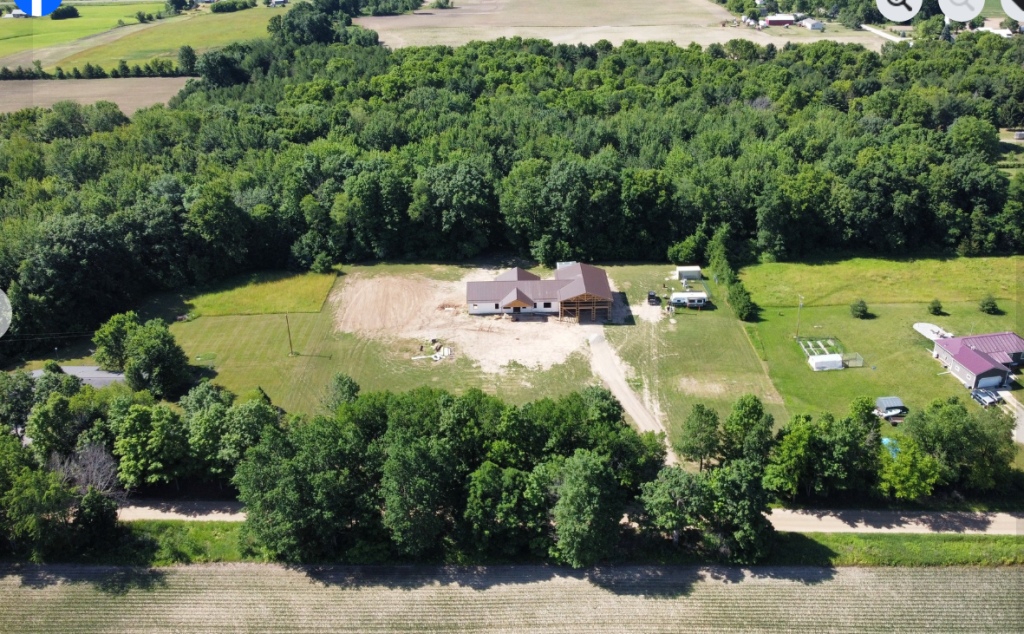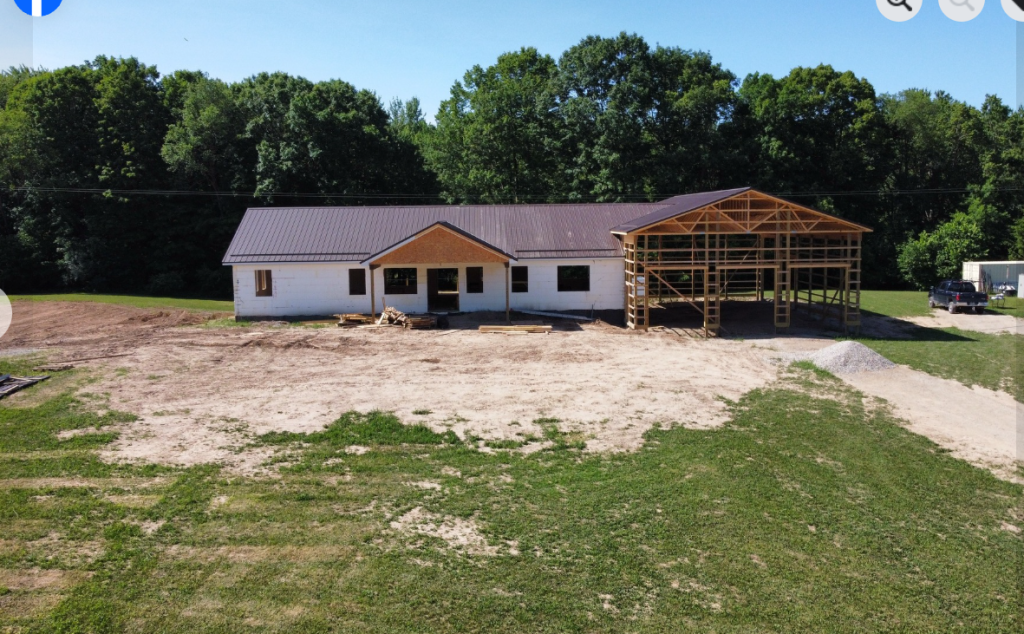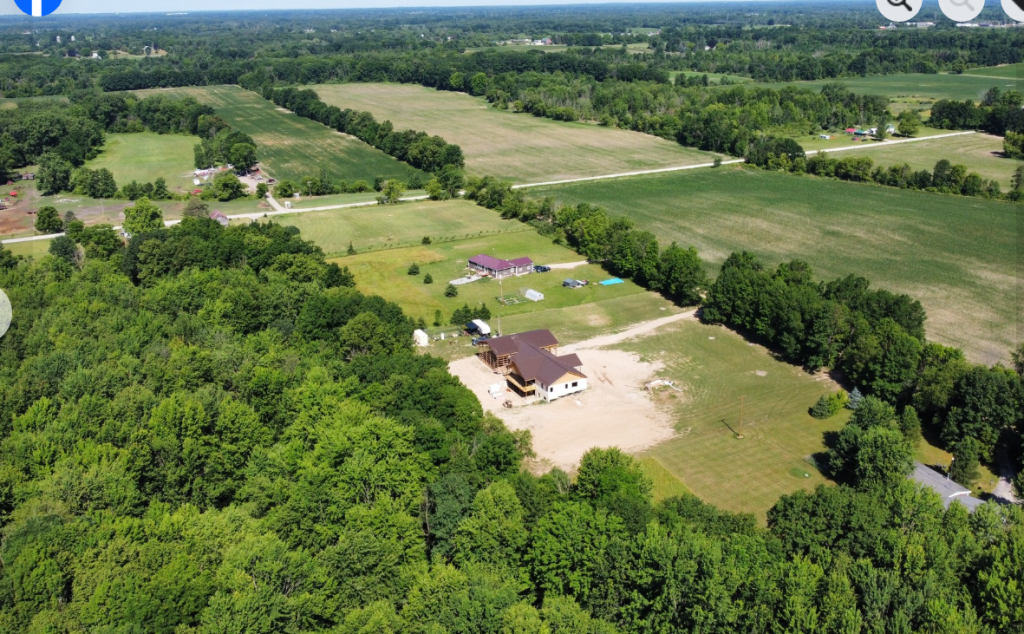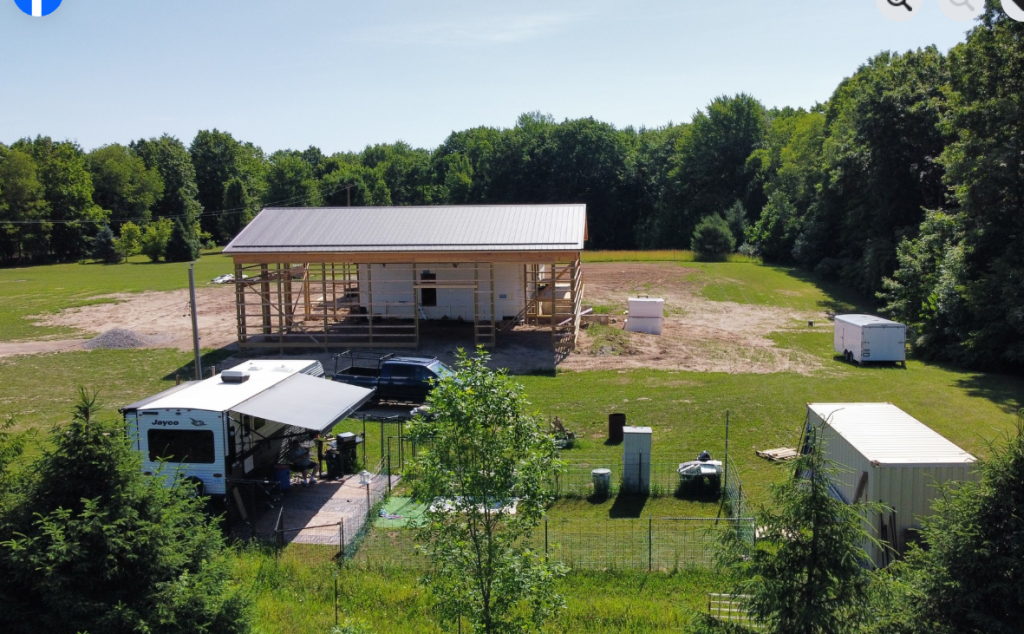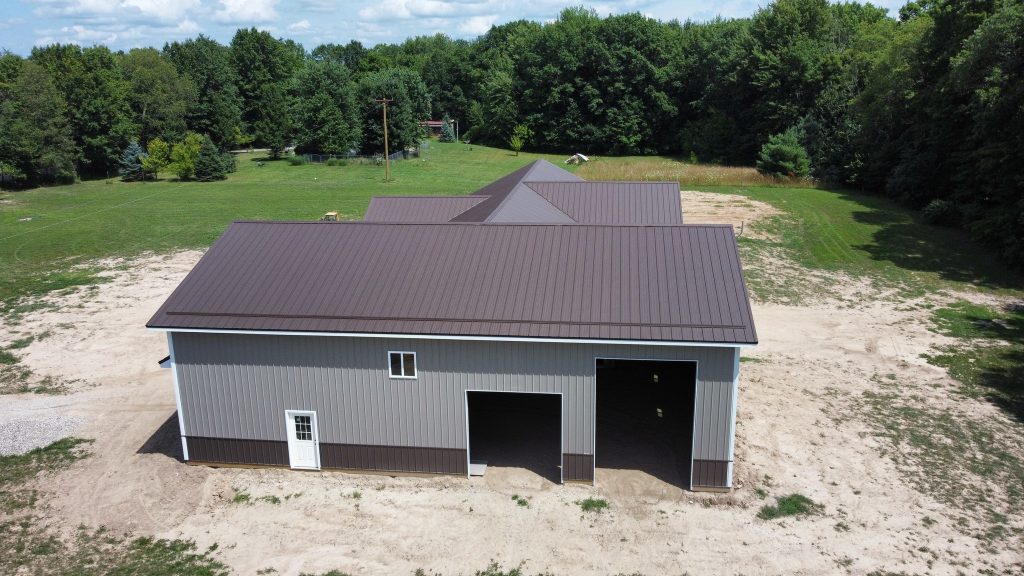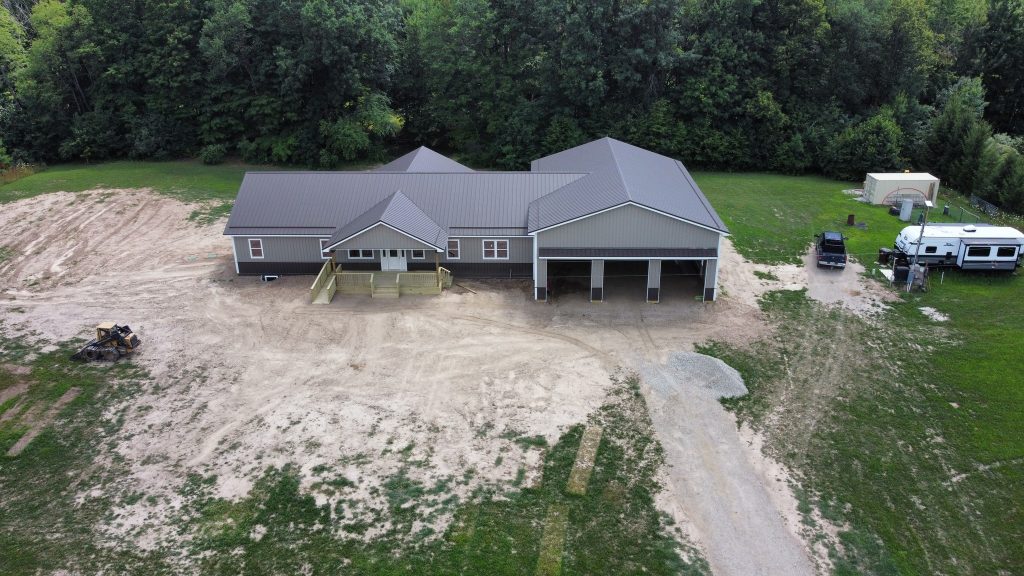
When strategically planning future plans. It is impossible to think independently. We all come from someone, unless you are an orphan. Therefore it is necessary for people to rely on their elders.
Key Points
- The Parable of the Rich Fool, from Luke 12:16-21, likely illustrates the dangers of greed and self-reliance, emphasizing trust in God’s providence.
- Divine Providence seems to refer to God’s active role in guiding events and providing for creation, connecting to the parable through God’s provision of wealth and control over life.
- Research suggests the parable teaches recognizing God’s gifts, using them wisely, and focusing on spiritual rather than material riches, aligning with Divine Providence.
The Parable of the Rich Fool
The Parable of the Rich Fool tells of a wealthy man who, after a bountiful harvest, plans to store his surplus grain in larger barns and live a life of leisure, saying, “Take life easy; eat, drink, and be merry” (Luke 12:19). However, God calls him a fool, declaring, “This very night your life will be demanded from you. Then who will get what you have prepared for yourself?” (Luke 12:20). This story, found in the Bible, highlights the folly of trusting in material wealth and ignoring God’s sovereignty.
Connection to Divine Providence
Divine Providence refers to God’s active involvement in the world, guiding events and providing for His creation. In the parable, the rich man’s wealth comes from God’s provision, as his land “produced plentifully” (Luke 12:16). Yet, he fails to acknowledge this, planning to hoard his riches for himself. The parable suggests that true wisdom lies in recognizing God’s gifts, using them to help others, and trusting in His care, which aligns with the concept of Divine Providence.
Survey Note: Detailed Analysis of the Parable of the Rich Fool and Divine Providence
This note provides a comprehensive exploration of the Parable of the Rich Fool and its connection to Divine Providence, drawing from biblical texts, commentaries, and theological interpretations. The analysis aims to offer a detailed understanding for readers interested in the theological and practical implications of this parable.
Background of the Parable
The Parable of the Rich Fool is found in Luke 12:16-21, part of Jesus’ teachings in the New Testament. It begins with a man whose land produces an abundant harvest, leading him to consider his options: “What shall I do? I have no place to store my crops” (Luke 12:17). He decides to tear down his barns and build larger ones, planning to store his surplus grain and live a life of ease, saying, “Take life easy; eat, drink, and be merry” (Luke 12:19). However, God intervenes, calling him a fool and declaring, “This very night your life will be demanded from you. Then who will get what you have prepared for yourself?” (Luke 12:20). Jesus concludes, “This is how it will be with whoever stores up things for themselves but is not rich toward God” (Luke 12:21).
This parable is often categorized as a shorter narrative, less frequently discussed compared to others like the Good Samaritan, but it carries significant moral and theological weight. It appears in the context of Jesus addressing a crowd, responding to a man seeking arbitration over an inheritance, and warning against greed (Luke 12:13-15).
Understanding Divine Providence
Divine Providence refers to the theological concept that God is actively involved in the world, guiding events, and providing for His creation. It encompasses God’s sovereignty over nature, human affairs, and individual lives, ensuring that all things work according to His will. This concept is evident in various biblical passages, such as Matthew 6:26, where Jesus notes, “Look at the birds of the air; they do not sow or reap or store away in barns, and yet your heavenly Father feeds them.”
In the context of the parable, Divine Providence is seen in God’s role as the ultimate provider. The rich fool’s abundant harvest is a direct result of God’s blessing on the land, yet the fool fails to acknowledge this, focusing instead on his own plans and security.
Connection Between the Parable and Divine Providence
God’s Provision of Wealth: The parable begins with the land producing plentifully, which is an explicit example of Divine Providence. As noted in GotQuestions.org, God materially blessed the rich fool, but the fool’s response was to hoard this blessing rather than use it in alignment with God’s purposes. This highlights the importance of recognizing God’s role as the source of all wealth and resources.
Misuse of God’s Gifts: Divine Providence implies that God’s provision comes with an expectation of stewardship. The rich fool’s decision to store up his wealth for personal indulgence, ignoring the needs of others, contrasts with biblical teachings such as 2 Corinthians 9:6-15, which states, “And God is able to provide you with every blessing in abundance, so that having all contentment in all things at all times, you may abound in every good work.” Bible Study Tools suggests that the parable warns against materialism, emphasizing that Christians have a guarantee that “God will get us what we need when we need it,” reflecting trust in Divine Providence.
The Uncertainty of Life and God’s Sovereignty: The sudden declaration of the fool’s death, “This very night your life will be demanded from you,” underscores God’s sovereignty over life and death, a core aspect of Divine Providence. Wikipedia notes that commentaries, such as John McEvilly’s, interpret this as God’s wisdom, showing that wealth cannot secure the future, as life is ultimately in God’s hands. This aligns with the idea that human plans are subject to divine timing and control.
Call to Spiritual Riches: The parable’s conclusion, urging believers to be “rich toward God,” connects to Divine Providence by emphasizing trust in God’s care rather than material security. Ellicott’s Commentary, referenced in the analysis, contrasts the fool’s approach with the psalmist’s, noting the latter’s repose is “not the worldling’s serenity nor the sensualist’s security, but the repose of the quiet conscience and the trusting heart,” linked to Divine Providence.
Theological Interpretations and Lessons
Trust in God Over Material Wealth: Jesus teaches, as seen in Luke 12:23-34, not to be concerned about providing for oneself, as “God will care for them as he cares for the lilies of the fields.” This reflects a call to trust in Divine Providence, using possessions to help others rather than hoarding them (Bible Study Tools).
Avoiding Greed and Self-Reliance: The parable warns against greed, with biblical instructions such as Psalm 62:10, “Do not set your heart on increasing riches,” and Proverbs 11:24, “One who gives freely grows richer,” emphasizing the folly of self-reliance over trust in God’s provision (GotQuestions.org).
Community and Stewardship: The parable encourages using wealth to build God’s kingdom and support the community, reflecting Divine Providence in communal care. Luke 12:42 discusses trustworthy servants, suggesting a model of stewardship under God’s guidance (Bible Study Tools).

Historical and Cultural Context
The parable’s message resonates in an honor-shame culture, as noted in The Intersection, where collective thinking is prevalent. The rich fool’s individualistic approach, focusing on personal gain, contrasts with the biblical call to community care, reflecting Divine Providence’s emphasis on God’s honor over human pride.
Contemporary Relevance
Today, the parable remains relevant, challenging modern tendencies toward materialism and self-sufficiency. It calls believers to trust in God’s provision, use resources for good, and focus on eternal values, aligning with the theological understanding of Divine Providence as God’s active care for His creation.
Conclusion
The Parable of the Rich Fool and Divine Providence are intricately linked, with the parable serving as a cautionary tale against greed and a call to trust in God’s provision. It teaches that all wealth comes from God, life is under His control, and true wisdom lies in using His gifts to honor Him and help others, reflecting a life lived under Divine Providence.
Key Citations
- Parable of the Rich Fool Wikipedia page
- Bible Study Tools Parable Analysis
- GotQuestions.org Parable Meaning Explanation
- Bible Study Tools Luke Passage Reference
- Bible Study Tools 1 Peter Reference
- Bible Study Tools Luke 12:42 Reference
- The Intersection Parable Cultural Context
Real World Example:
My father bought a house in 1989, and as time passed it gradually matured in profit. But it was a very small house, and we were able to care for my aging grandmothers, and get my sister through college. But myself, the son, had nowhere to stay, nowhere to sleep, and spent my life in the school year after year.
Once my father turned 62 years of age, he retired, and slowly but surely prepared the 30+ year old house for sale. Polishing every detail, he was able to make a profit of it it’s sale.
At this point he was very old, and unable to do heavy lifting or hard work.
We helped him pack, and he took 4 trips from Sacramento, California, to Michigan in a trailer towed by a Dodge RAM. His good friend sold it to him on a discount, and his brother sold him a trailer at cost.
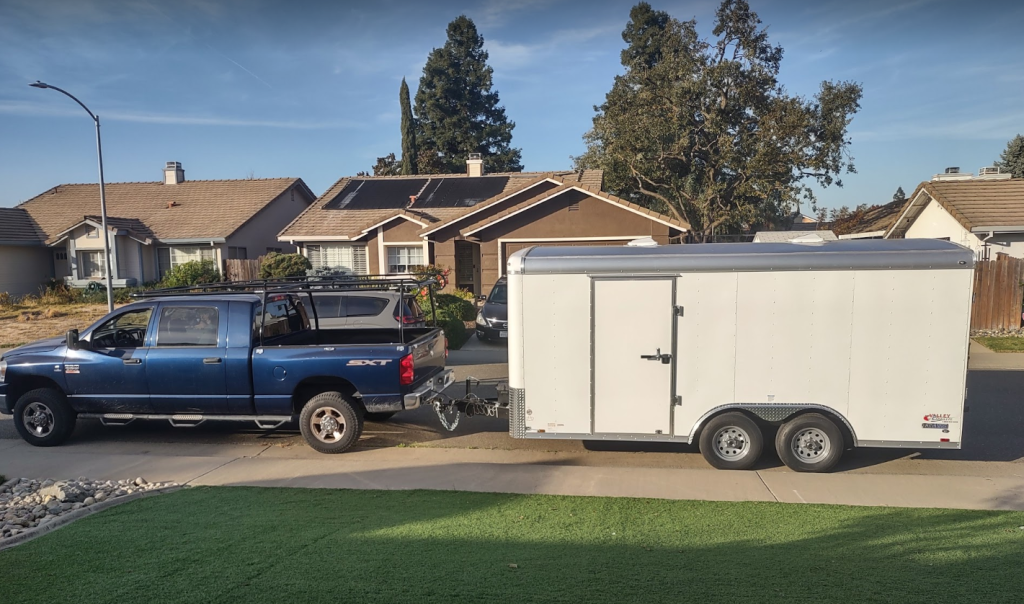
This enabled my aging parents to move out of the city, and relocate to a more affordable area.
Once everything was set up in Michigan, my father had made house plans. I am unable to provide a schematic, I have lost the photo. Not knowing his way around, a friend of a friend, referenced a man in the Mennonite community. My father had several contractors come and visit him and many of them attempted to rip us off. And resources are limited. This Mennonite contract and his sons and associates were willing to help us, and construction began.
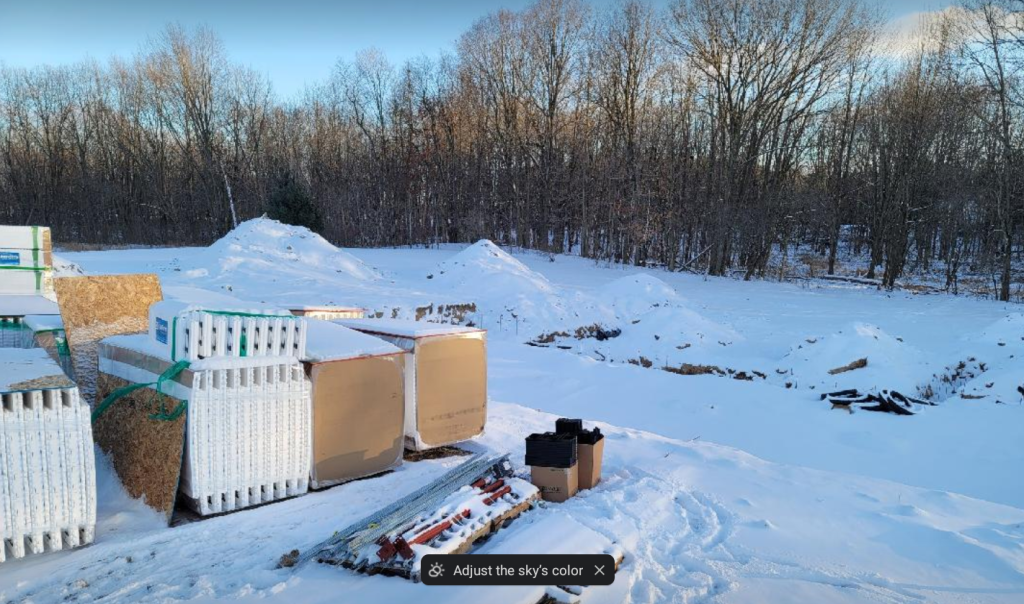
This was the beginning they started in winter




This contractor does not drive automobiles. He has wagons, he has a diesel tractor to pull the doghouse with.
It was pure providence that this man lived local to my father, and that we were able to contact the community, and have someone in the community local help us, and there is not any room for me to stay in the community while this house is being built. It is divine providence that the loose ends came together, and we are all able to relocate and be together and get more reasonable circumstantial living.
Update:
